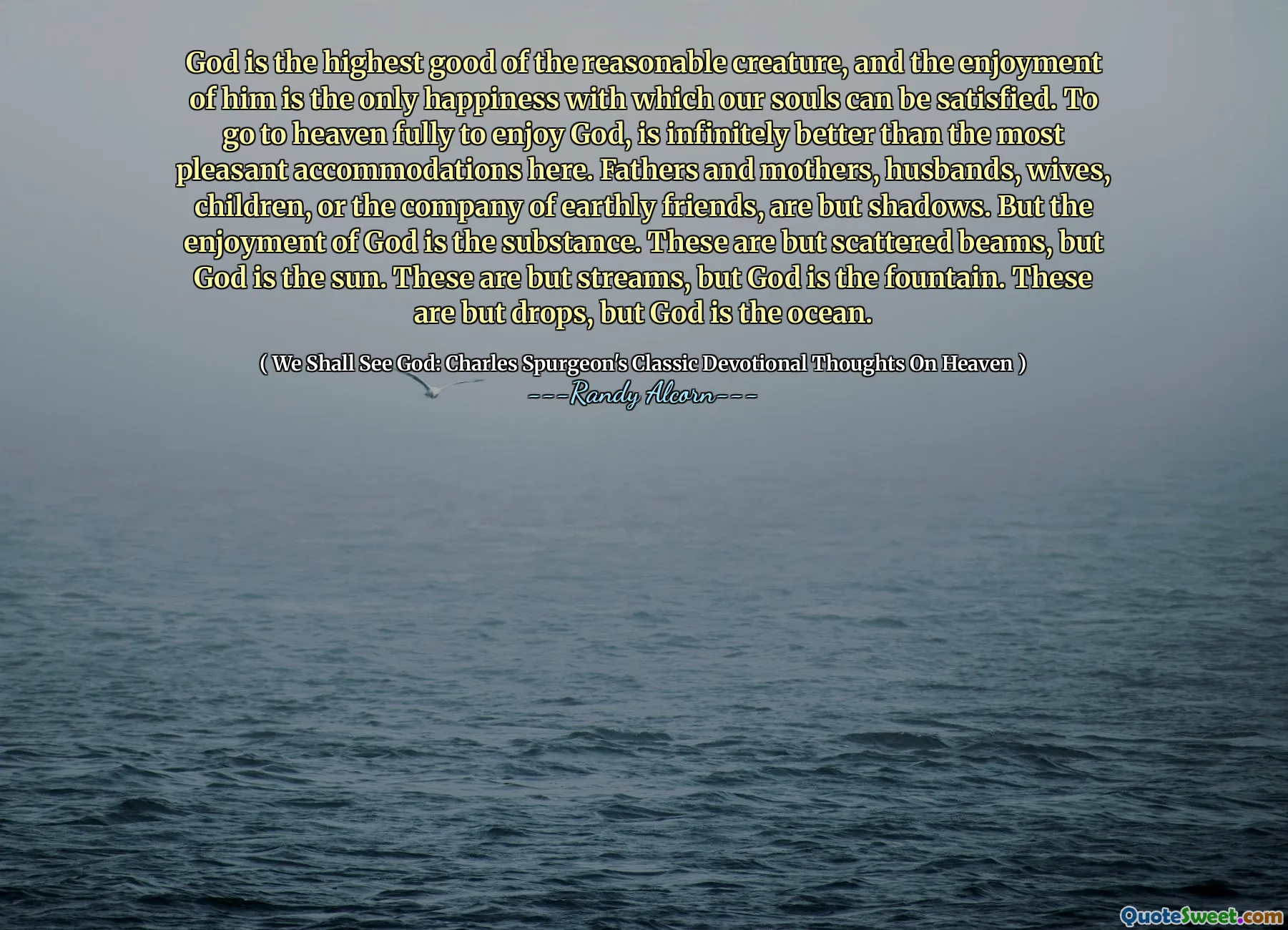
God is the highest good of the reasonable creature, and the enjoyment of him is the only happiness with which our souls can be satisfied. To go to heaven fully to enjoy God, is infinitely better than the most pleasant accommodations here. Fathers and mothers, husbands, wives, children, or the company of earthly friends, are but shadows. But the enjoyment of God is the substance. These are but scattered beams, but God is the sun. These are but streams, but God is the fountain. These are but drops, but God is the ocean.
The essence of the quote emphasizes that God represents the ultimate goodness for rational beings, and true happiness can only be found in enjoying a relationship with Him. The fulfillment that comes from experiencing God's presence is far superior to any pleasures or comforts this world can offer, including familial and social bonds. While such relationships are important, they are merely reflections of the true joy that can be derived from God alone.
The imagery used highlights the distinction between fleeting earthly joys and the lasting satisfaction found in God. Life’s pleasures are compared to mere shadows, while God is likened to the sun, the source of all light and warmth. This analogy further illustrates that while human connections may provide temporary happiness, they cannot compare to the profound joy that comes from a deep communion with God, who is depicted as the vast ocean of delight, overshadowing all minor, transient experiences.








